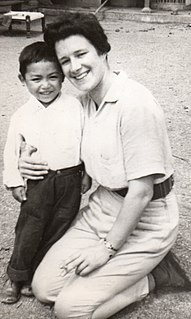Цитата Джона Стейнбека
Если в написании историй и есть волшебство, а я убежден, что оно есть, то еще никому не удавалось свести его к рецепту, который можно было бы передавать от одного человека к другому. Формула, кажется, заключается исключительно в страстном желании писателя передать читателю что-то, что он считает важным. Если у писателя есть такое стремление, он может иногда, но далеко не всегда, найти способ сделать это.
Связанные цитаты
Основное побуждение, которое мотивирует и порождает писательство... это желание писателя придумать и рассказать историю, а также познать самого себя. Но чем больше я пишу, тем больше я чувствую силу другого побуждения, которое сотрудничает с первым и дополняет его: желание познать Другого изнутри него самого. Почувствовать, что значит быть другим человеком. Чтобы иметь возможность прикоснуться, хотя бы на мгновение, к огню, горящему внутри другого человека.
Никто не может научить писать, но уроки могут стимулировать желание писать. Если вы родились писателем, вы неизбежно и беспомощно будете писать. Прирожденный писатель обладает самопознанием. Читать читать читать. И если вы писатель-фантаст, не ограничивайтесь чтением художественной литературы. Каждый писатель прежде всего является широким читателем.
Никто не может научить писать, но уроки могут стимулировать желание писать. Если вы родились писателем, вы неизбежно и беспомощно будете писать. Прирожденный писатель обладает самопознанием. Читать читать читать. И если вы писатель-фантаст, не ограничивайтесь чтением художественной литературы. Каждый писатель прежде всего является широким читателем.
Для меня писательство было не профессией, а необходимостью. Так и осталось, хотя технически я теперь профессиональный писатель. Сила этого врожденного желания писать всегда ставила меня в тупик. Понятно, что действительно одаренные люди должны испытывать непреодолимое желание использовать свой дар; но сильное желание с небольшим даром кажется почти генетической ошибкой.
Как часто я пытался объяснить студентам, пишущим, что первое, что должен сделать писатель, — это полюбить читателя и пожелать ему добра. Писатель должен верить, что читатель, по крайней мере, так же умен, как и он сам. Только в таком благожелании и доверии, только когда писателю кажется, что он пишет письмо хорошему другу, только тогда произойдет волшебство.
Читателю в тысячу раз легче судить, чем писателю выдумывать. Писатель должен вызывать свою Идею из ниоткуда, а своих персонажей из ничего, ловить летящие слова и прибивать их к странице. Читателю есть к чему стремиться и с чего начать, дарованное ему писателем безвозмездно и с великой щедростью. И все же читатель не стесняется придираться.
Как читатель, когда писатель становится сентиментальным, вы дрейфуете, потому что там происходит что-то подозрительное. Вы узнаете момент, который в значительной степени связан с писателем и его собственной потребностью верить во что-то, чего на самом деле может и не быть. Как читатель, вы думаете: «Куда делась история? Куда делся человек, о котором я читаю?
Есть еще одна иллюзия, что важно быть уважаемым, быть любимым и ценимым, быть важным. Многие говорят, что у нас есть естественное стремление к тому, чтобы нас любили и ценили, чтобы мы принадлежали друг другу. Это неверно. Отбросьте эту иллюзию, и вы обретете счастье. У нас есть естественное стремление быть свободными, естественное стремление любить, но не быть любимыми.
В письме есть старая пословица: «Не рассказывай, а покажи». Писательство — это не психология. Мы не говорим «о» чувствах. Наоборот, писатель чувствует и своими словами пробуждает эти чувства в читателе. Писатель берет читателя за руку и ведет его через долину печали и радости, даже не произнося этих слов.
Я убежден, что страх лежит в основе большинства плохих текстов. Дамбо поднялся в воздух с помощью волшебного пера; по той же причине вы можете почувствовать желание ухватить пассивный глагол или одно из этих неприятных наречий. Просто помните, прежде чем вы это сделаете, что Дамбо не нужно было перо; магия была в нем.































